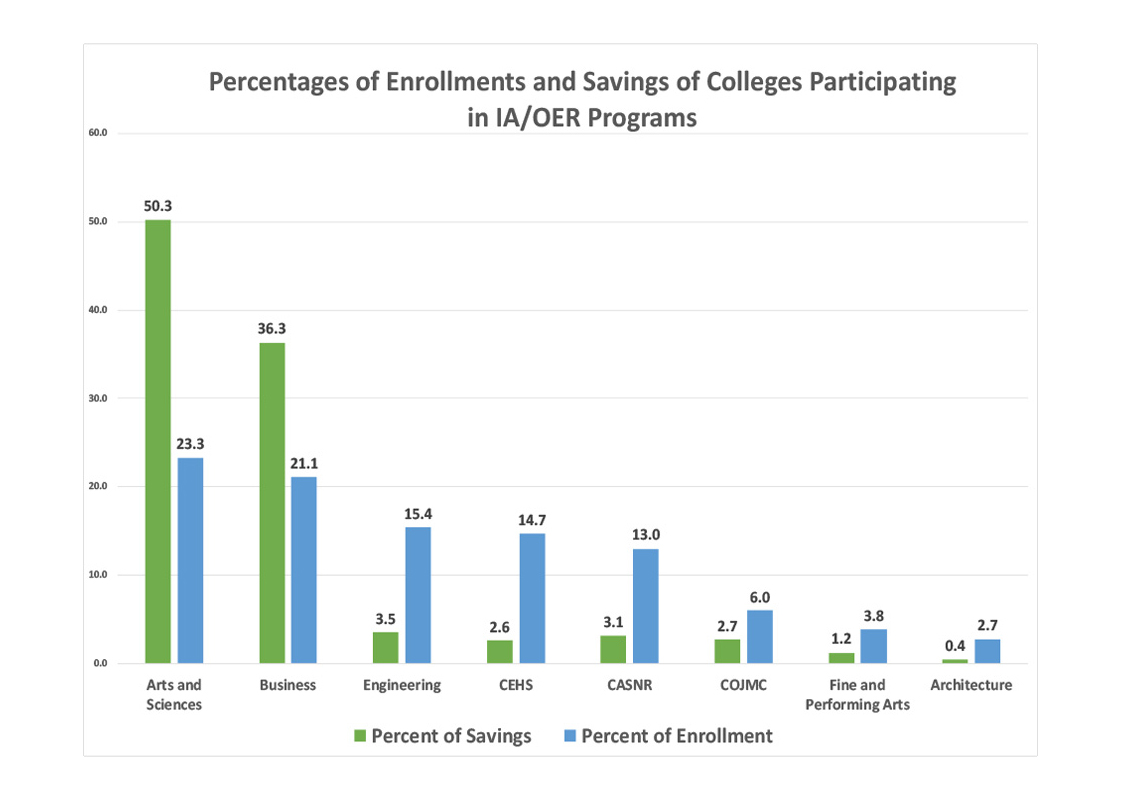
Since Spring 2019, the Unizin Engage and Follett Access inclusive access programs, along with open education resources, have saved UNL students approximately $3.5 million in course materials. These programs are part of Successful Teaching with Affordable Resources — a campus initiative to decrease the cost of student education by making access to textbooks and course content more affordable. Upcoming order deadlines are April 15 for summer sessions, May 15 for fall semester, and October 15 for Spring 2022.
Math moves all first-year courses to OER.
Although the move to OER took some planning and support, students’ responses have been very positive. The savings to students have been substantial and the evidence from the website is that students consult the OER often. Having a text adapted to our needs and that can be edited quickly are two very nice bonuses. Overall, these changes gave us better texts that costs students nothing. — Allan Donsig, professor and vice chair of the mathematics department.
The Unizin Engage and Follett Access programs at the university started as pilot programs. In Summer 2019, Unizin Engage had 43 textbooks with over $5,000 in estimated savings. By Spring 2021, the program has been automated in Canvas with 3,238 textbooks and over $180,000 in estimated savings.
LIFE instructional team finds value in textbook usage patterns.
Inclusive access allowed the LIFE instructional team to lower the cost to our students, customize access on a semester basis, and ensure that our students have access to the text from day one. In addition, some of our instructors are utilizing the Unizin Engage to understand the patterns by which students utilize the text on a page-by-page basis. — Chad Brassil, associate professor in the School of Biological Sciences.
The Follett Access pilot program also kicked off during Summer 2019 with 143 textbooks and over $5,000 in savings. In Spring 2021, there are 10,875 textbooks with over $655,000 in estimated savings.
Communication Studies sees increase in equity and inclusivity.
Inclusive access has, in many ways, been a game changer for students and GTAs in my large enrollment course. First, we were able to substantially reduce student cost around the e-book and second, we were able to ensure all students had an easy, seamless, and consistent point of access within Canvas from the first day of class. This attention to reducing costs and simplifying access has been well-received by our students and has contributed to our ability to be more pedagogically inclusive, ensuring all students have an equal opportunity to "hit the ground running" at the start of the semester. — Kathy Castle, associate professor of practice and assistant chair of the communications studies department.
The impact of inclusive access can be substantial for students. Textbook costs can decrease from as much as $318.25 in print to $67.50 in digital format. To date, cumulative savings for students in the College of Arts and Sciences is approximately $1.7 million and in the College of Business approximately $1.2 million. Cumulative savings for each college is listed on the STAR program website.
Students want more affordable and accessible course materials.
Open educational resources and inclusive access are excellent learning materials that students can be using for their classes. As high textbook costs are a common complaint shared amongst students, many students will resort to options like finding cheaper or free materials online —whether this is through Amazon, textbook resale websites, or by finding free pdfs of a textbook. Some students will share a textbook and split the cost, and some students flat-out will not buy the textbook for a class. Due to these issues that revolve around textbooks and their high cost, OER and inclusive access provide less expensive and much more accessible options for all students. — Erin Kruger, Nebraska student and member of the ASUN student government academic committee.
The STAR initiative leverages the resources of the Executive Vice Chancellor's Office, University Libraries, Information Technology Services, and the Center for Transformative Teaching.
More details at: https://teaching.unl.edu/star-initiative/